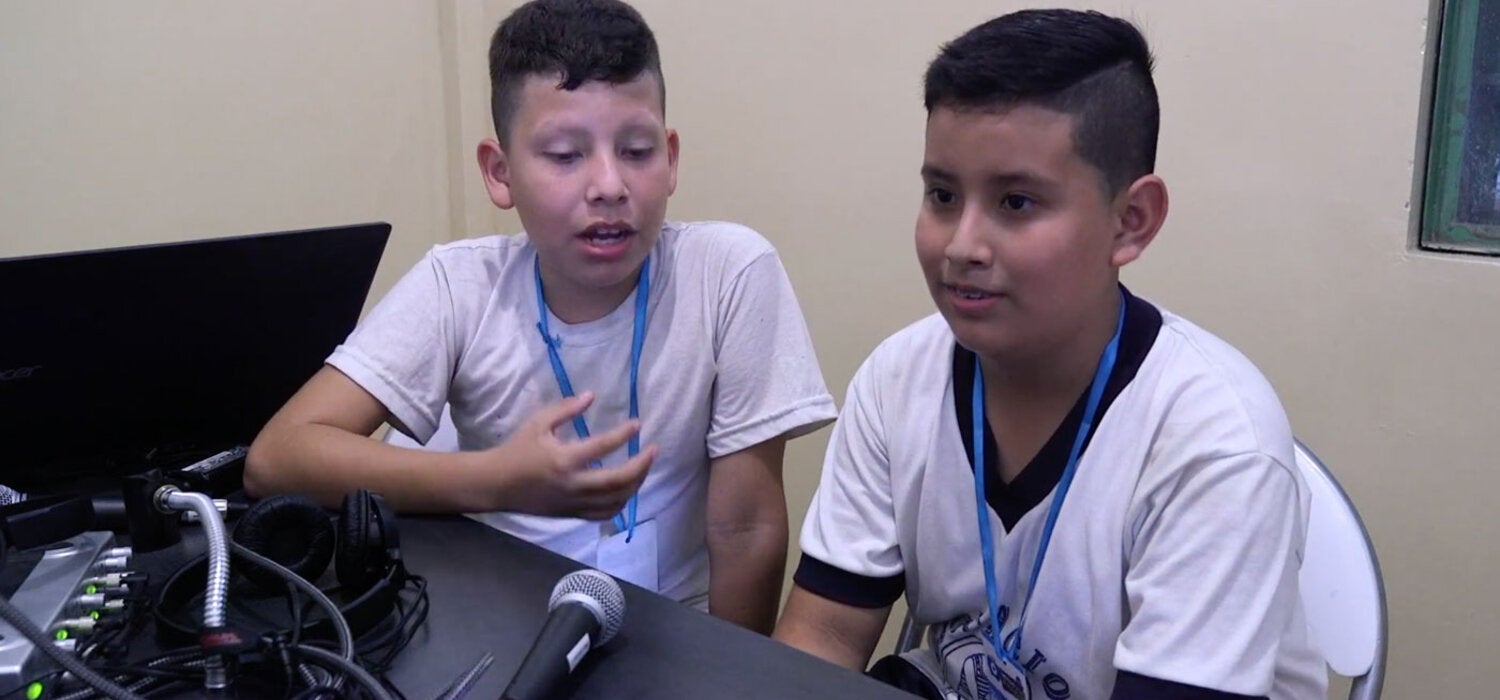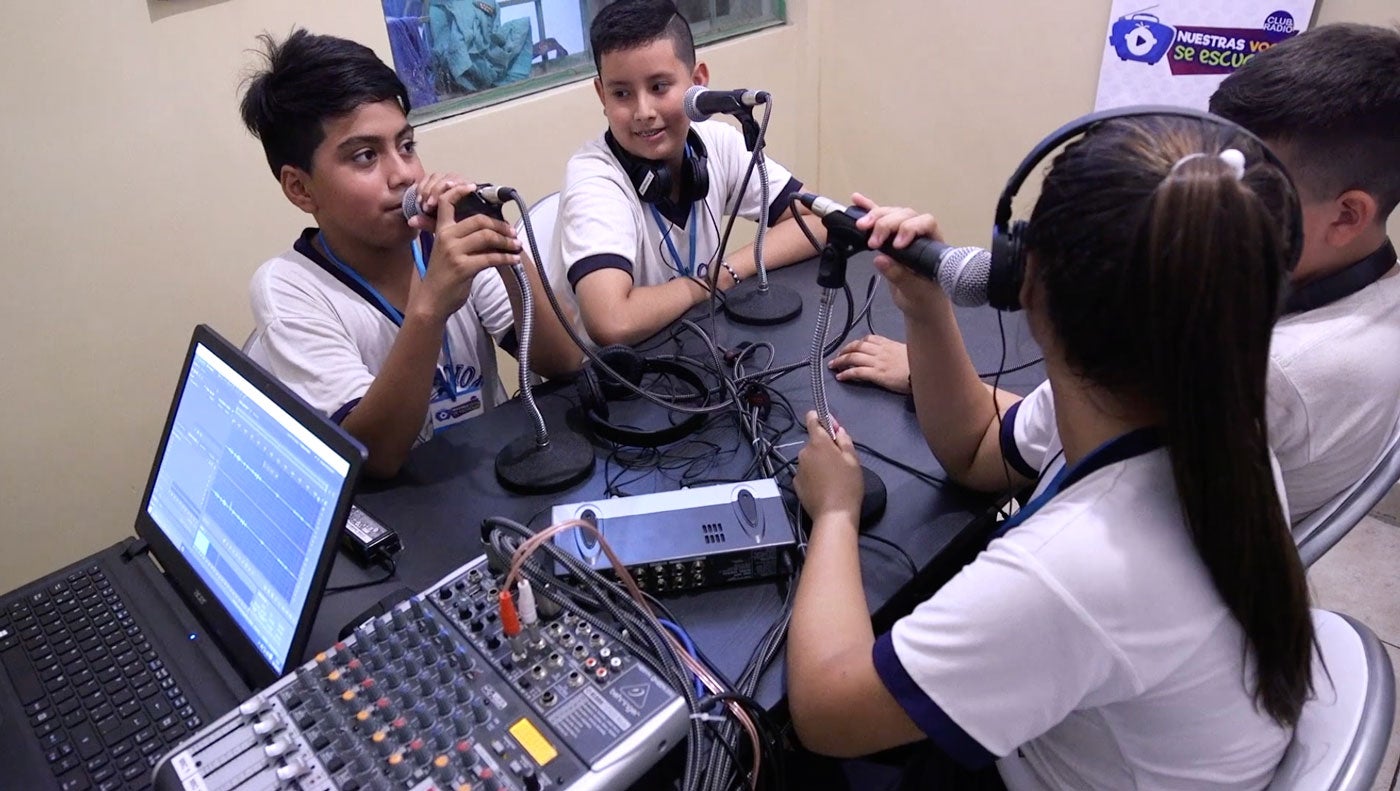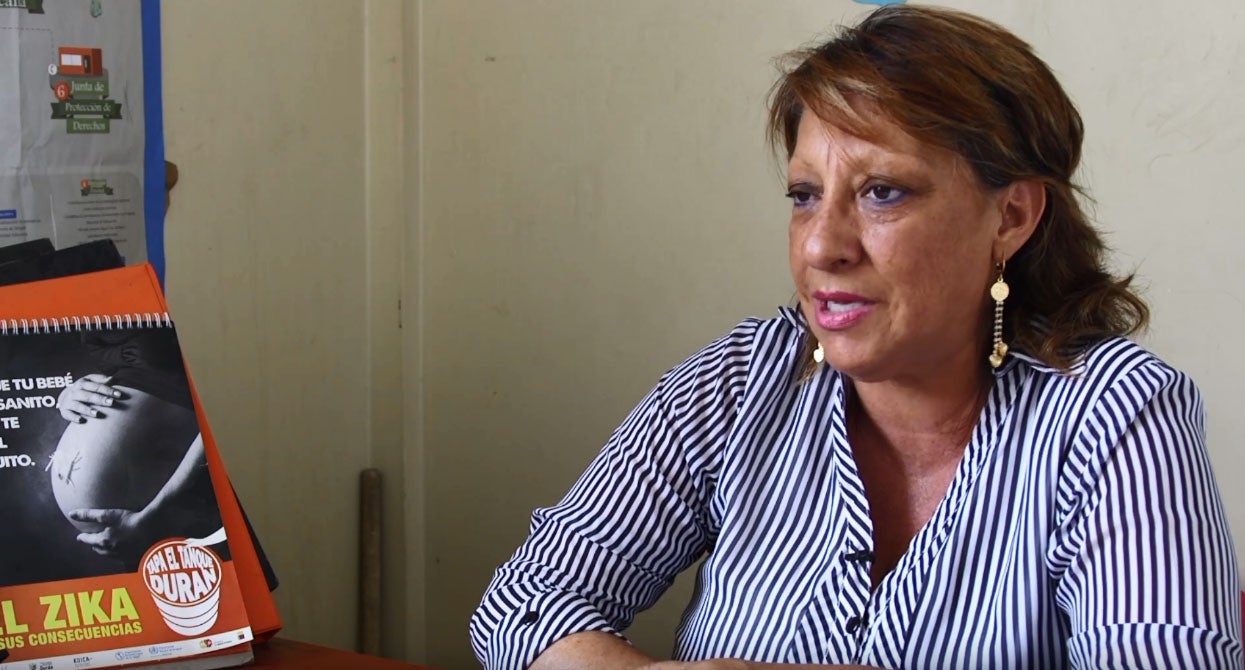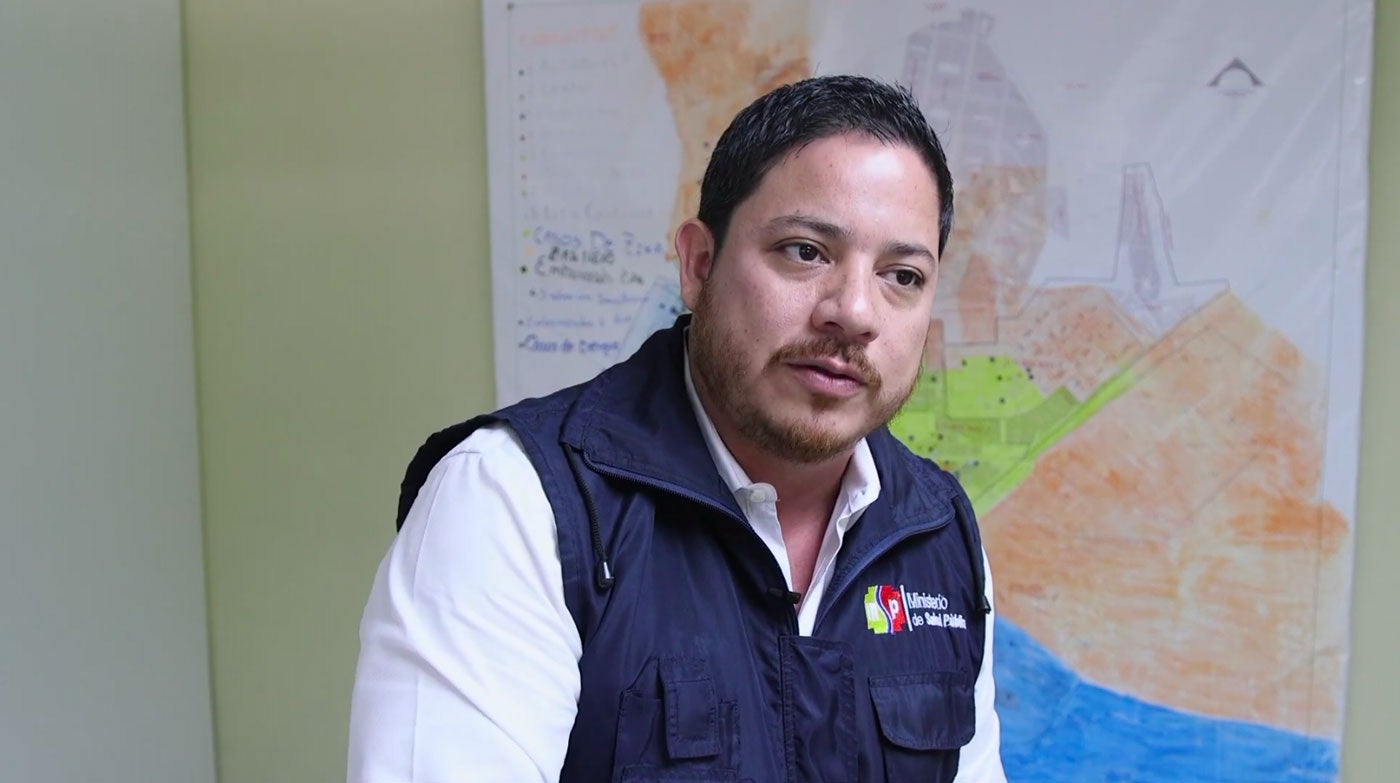An initiative supported by PAHO and the Korean International Cooperation Agency uses communication to empower students in El Recreo, Durán, to take actions that benefit their health and improve their lives
Durán, Ecuador, 22 February 2019 (PAHO)- The radio interview goes much like any other – “What should pregnant women do to avoid Zika,” asks the interviewer – “They should use mosquito repellent, mesh on their doors and windows, and nets in their bedrooms,” answers the interviewee. The only difference is that the protagonists are not a journalist and a health professional, but two elementary school students from El Recreo in Durán, Ecuador.
The scene unfolds in a classroom at the Renigno Rodas school. The space has been transformed into a radio studio which a group of students visit regularly in order to conduct the program “Our voices are heard”. There, they share information to help other students, and their communities, lead healthy lives and prevent disease.
“Before joining the radio club, I didn’t know about dengue, chikungunya and zika, but thanks to the talk we were given, I now know what the diseases are and how to prevent them”
“Before joining the radio club, I didn’t know about dengue, chikungunya and zika, but thanks to the talk we were given, I now know what the diseases are and how to prevent them,” says the interviewer, Steven Parrales. The club has also helped him improve his diction. “Before, I used to get tongue-tied, but as I have had to talk a lot, and interview people, my language skills have improved,” he added.
The school radio initiative began in 2016 in two elementary schools and a high-school in Durán. The initiative forms part of a project that seeks to strengthen primary health care through inter-institutional and social participation and mobilization, of which communication was a strategic element.
The Project, implemented by Ecuador’s Ministries of Public Health and Education, the Milagro State University and the Pan American Health Organization (PAHO), with funding from the Korean International Cooperation Agency (Koica), focuses on reducing the risk factors associated with non-communicable diseases such as childhood obesity, unhealthy diet and physical inactivity, as well as the risk of contracting communicable diseases such as zika, dengue and chikungunya.
Violeta Albán Salazar, Principal of the Benigno Rodas school, believes that the project “has enabled students to develop a variety of skills, has given them the confidence to speak out, and has helped them to break unhealthy habits.”
In “Our voices are heard”, students talk about healthy eating, physical exercise, cutting out sugary drinks, the importance of healthy lunch boxes and taking preventative measures against mosquito-borne diseases. In order to do this, they were given training by local health and education personnel along with PAHO/WHO.
Communication students from the Milagro State University’s Faculty of Social Sciences coordinate the radio clubs, teaching the children about radio, how to use the equipment and how to write scripts. According to faculty professor, Guillermo del Campo, the participation of university students emphasizes their “commitment to the community”. He believes that radio clubs “are an educational, participative and inclusive strategy.”
“Not only has the club shown me how to use radio equipment, but it has also taught me to prevent zika and eat healthily. I think this will enable me to help more people,” says Dani, a member of another radio club in El Recreo.
For José Ricardo San Miguel, former Health Director of the Durán district, “the children have become more independent, learned to communicate, believe in themselves, and are more aware of how to contribute to their community, and how this impacts their colleagues, parents and family members.”
Everyone agrees that school radios promote self-expression, teamwork, help develop imagination and creativity, as well as enhance oral expression, diction, writing and enable the children to execute their right to expression.
But perhaps the most important learning is expressed by a member of the Imbaburax school radio club: “We have learned that we are no longer mere observers but can also take action.”
— Link to video on Nuestras voces se escuchan radio program
— Proyecto MSP-OPS/OMS-KOICA




